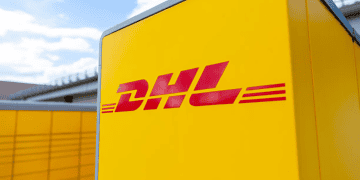Neste Corporation and DHL Group are expanding their partnership to explore how Neste’s renewable solutions can help DHL reach their goal of reducing emissions from transportation, both by air and on the road. They will focus on using renewable diesel, called “HVO100,” and sustainable aviation fuel (SAF) in DHL’s logistics.
DHL has set an ambitious target to achieve net-zero greenhouse gas emissions in logistics by 2050. As part of their plan for 2030, they aim to convert two-thirds of their last-mile delivery vehicles to electric and increase the use of sustainable fuels in all transportation methods to over 30%, including SAF. Neste, which is a top producer of renewable diesel and SAF, will help DHL meet these goals.
For air travel specifically, DHL and Neste plan to develop a model to secure about 300,000 tons of unblended SAF each year by 2030. They will also look into using renewable diesel to support DHL’s efforts to reduce emissions in road transport.
Yin Zou, an executive at DHL Group, mentioned that partnering with Neste is a key move in their strategy for achieving net-zero emissions in logistics by 2050. By collaborating with a leader in renewable fuels, DHL hopes to meet their interim targets and create innovative solutions that support their sustainability goals and those of their customers.
Carl Nyberg from Neste expressed excitement about working more closely with DHL Group to tackle greenhouse gas emissions in transportation. He highlighted that Neste’s renewable fuels can help lower emissions both on the road and in the air.
The two companies have a history of working together, including efforts in delivering sustainable aviation fuel. They also collaborated on developing a system for the International Sustainability & Carbon Certification (ISCC) that allows airlines, logistics providers, and customers to accurately report on the emission reductions achieved through SAF usage.
This partnership is part of a larger trend in the industry towards sustainable logistics solutions, as companies strive to reduce their environmental impact and meet global climate goals. Using renewable fuels in logistics is seen as a crucial step in lowering greenhouse gas emissions and promoting sustainability.
Your source for supply chain report news updates: The Supply Chain Report. For international trade insights and tools, head to ADAMftd.com.
#NesteDHLPartnership #SustainableLogistics #RenewableFuels #NetZeroEmissions #GreenTransport #SAF #HVO100 #EcoFriendlyLogistics #CleanEnergySolutions #CarbonReductionGoals















